Unlocking the Hidden Healing Potential of Music
Unlocking Wellness: Music’s Secrets for Physical Health
Picture this: I was in a world clouded by loss, where every day felt like walking through a fog.
Then, as if by magic, a song whispered through the air.
It was like the first ray of sun piercing through a gloomy sky, turning melodies into my sanctuary.
Each chord struck a chord within me, painting my world with vibrant colors of hope and comfort.
It wasn’t just music but a melody wrapped around me like a warm embrace, transforming my quiet, gray mornings into a canvas of rich, comforting hues.
The notes danced around me, each one a brushstroke that healed and soothed. It’s a journey of finding light in the darkest corners, shared by many of us.
I’m here to guide you through this vivid, musical landscape.
Imagine turning your moments of solitude into scenes of serene, auditory bliss. I’ll share how you can create your healing soundtrack, infusing your life with melodies that touch the soul.
Let’s embark on this harmonious journey, starting right now, where each note brings a splash of color to your life.
Beyond the Soul – Music’s Remarkable Impact on Health

A person immersed in music, experiencing the therapeutic effects of healing tunes. Photo by Lechon Kirb
Music’s Healing Impact on Health
If you’re stressed or anxious, you might turn to music to calm your mind and soothe your soul. But did you know music can also have healing powers beyond emotional comfort?
Research has shown that music can have physical benefits, such as reducing pain, lowering blood pressure, and improving immune function.
The healing power of music has been recognized for centuries, with ancient cultures using music as a form of therapy.
In modern times, music therapy has become a recognized field of healthcare, with trained professionals using music to help patients with a wide range of conditions, from anxiety and depression to chronic pain and neurological disorders.
Music therapy can involve listening to music, playing an instrument, or singing, and can be tailored to each individual’s needs and preferences.
While the exact mechanisms by which music can have healing effects are not fully understood, studies have shown that music can stimulate the release of endorphins, the body’s natural painkillers, and can also reduce levels of the stress hormone cortisol.
Music can also calm the nervous system, slowing heart rate and breathing and promoting relaxation.
So next time you feel under the weather, consider turning on some soothing tunes – your body and soul might thank you.
The Science of Music and Healing
Music has been used for centuries to promote healing and well-being.
Music has been recognized for its therapeutic effects, from ancient Greek philosophers like Pythagoras and Aristotle to ancient Egyptian medical papyrus texts.
Chinese medicine and Tibetan singing bowls have also incorporated music into their healing practices.
Understanding the Psychological and Physiological Responses
Research has shown that music can have a profound impact on both psychological and physiological responses.
Listening to music can stimulate the release of endorphins, natural painkillers that promote pleasure and euphoria.
Music can also reduce cortisol levels, a stress hormone that can negatively affect the body.
Physiologically, music can lower heart rate and blood pressure and improve respiratory function. It can also improve immune function by increasing the production of antibodies and natural killer cells.
Music Therapy – History and Practice
Music therapy is a formalized practice that uses music to address individuals’ physical, emotional, cognitive, and social needs.
It has been recognized as a profession since World War II when musicians were employed in hospitals to assist with the recovery of soldiers.
The National Association for Music Therapy was founded in 1950 to promote the use of music therapy in clinical settings.
There are two main approaches to music therapy: active and receptive. In active music therapy, the patient engages in musical activities such as singing, playing an instrument, or improvising.
In receptive music therapy, the patient listens to music and responds to it in various ways.
Tuning fork therapy is a specific type of music therapy that uses tuning forks to produce specific frequencies believed to have healing effects on the body.
This practice is based on the principles of sound healing, which suggest that sound vibrations can balance the body’s energy and promote healing.
In conclusion, the healing power of music is not just a myth. Science has shown that music can profoundly affect psychological and physiological responses.
Music therapy is a formalized practice recognized as a profession for over half a century.
Whether you prefer to listen to music or actively engage in musical activities, incorporating music into your daily life can positively impact your health and well-being.
Music’s Effects on Mental Health
Music has been used as a therapeutic tool for centuries, and for good reason.
It has been shown to have a powerful impact on mental health, helping to alleviate depression and anxiety and enhancing the quality of life for those with Alzheimer’s and dementia.
Alleviating Depression and Anxiety
Music can be a great way to lift your mood if you’re feeling down.
Research has shown that listening to music can help reduce symptoms of depression and anxiety.
It can also lower levels of the stress hormone cortisol, which is associated with anxiety.
In addition to listening to music, playing an instrument or singing can also be beneficial for those struggling with depression or anxiety.
Music can be a form of self-expression and a way to release emotions.
Enhancing Quality of Life for Alzheimer’s and Dementia
Music has also been shown to have a positive impact on those with Alzheimer’s and dementia.
It can help improve memory and attention and even enhance communication skills.
Listening to music from one’s past can also evoke memories and emotions, which can be a powerful tool for those struggling with memory loss.
In addition, music can help improve the quality of life for those with Alzheimer’s and dementia.
It can reduce agitation and improve mood, making daily life more enjoyable for the individual and their caregivers.
Overall, the healing power of music is not just for the soul.
It has real, tangible benefits for mental health and can be a powerful tool for those struggling with depression, anxiety, Alzheimer’s, and dementia.
So the next time you’re feeling down or stressed, try putting on some music and see how it makes you feel.
Physical Health and Music
Music has long been known to impact our mental and emotional well-being positively. But did you know that it can also significantly impact our physical health?
In this section, we will explore some of the ways that music can benefit our physical health.
Cardiology and Rhythms of the Heart
Music has been shown to affect the heart’s rhythms powerfully.
According to a study published in the Journal of Cardiovascular Disease Research, listening to music can help lower blood pressure and heart rate.
It is because music has a calming effect on the body, which can help reduce stress and anxiety.
Some hospitals have started using music therapy to help patients with post-traumatic stress disorder (PTSD) and cancer patients undergoing chemotherapy.
Pain Management and Recovery
Music can also be an effective tool for pain management and recovery.
According to a study published in the Journal of Advanced Nursing, patients who listened to music before, during, and after surgery reported less pain and anxiety than those who did not listen to music.
It is because music can help distract the mind from pain and reduce the need for opioids.
In addition, music can also help with recovery after surgery. According to a study published in the Journal of Music
Patients who listened to music while recovering from surgery had lower cortisol levels in therapy.
This hormone is associated with stress. In addition, patients who listened to music while recovering from surgery reported feeling less pain and anxiety.
Overall, music can be a powerful tool for improving physical health.
Whether dealing with a chronic illness or recovering from surgery, incorporating music into your treatment plan can help reduce stress, lower blood pressure, and manage pain.
So the next time you feel stressed or in pain, turn on some music and let it work magic!
Neurological Impact of Music
Music has been shown to impact the brain positively and can be used to aid in the recovery and treatment of neurological disorders.
In this section, we will explore the neurological impact of music and how it can be used to enhance motor skills and aid in the recovery of stroke patients.
Stroke Recovery and Motor Skills Enhancement
Music has been shown to enhance motor skills in stroke patients.
A study published in the Journal of Neurology, Neurosurgery & Psychiatry states, “Music-supported therapy can improve upper extremity motor function and spasticity in chronic stroke patients.”
The study found that patients who underwent music-supported therapy significantly improved their motor skills compared to those who did not.
Music can also be used to aid in the recovery of stroke patients.
A study published in the Journal of the American Geriatrics Society states, “Music therapy can be used as an effective tool to improve mood, cognitive function, and quality of life in stroke patients.”
Epilepsy and Music-Induced Therapy
Music-induced therapy has been shown to have a positive impact on patients with epilepsy.
According to a study published in the Journal of Clinical Neurophysiology, “music-induced therapy can significantly reduce the frequency of seizures in patients with epilepsy.”
The study found that patients who listened to music for at least 30 minutes a day significantly reduced seizure frequency compared to those who did not listen to music.
In addition to reducing the frequency of seizures, music therapy can also improve mood and reduce anxiety in patients with epilepsy.
According to a study published in the journal Epilepsy & Behavior, “music therapy can be used to reduce anxiety and improve mood in patients with epilepsy.”
Overall, music therapy can have a positive impact on neurological disorders such as stroke, autism, and epilepsy.
It can enhance motor skills, aid in stroke recovery, and reduce seizure frequency in patients with epilepsy.
Creating a personalized playlist can help improve mood and stimulate the release of dopamine, which can improve working memory and cognitive function.
Emotional Resonance of Music
Music can evoke strong emotions and connect with us on a deep level.
It can help us cope with difficult emotions such as tension, anger, and fatigue while promoting relaxation and reducing agitation.
Here are some ways in which music can have a positive impact on your emotional well-being.
Music for Stress Relief and Relaxation
Research has shown that listening to music can help reduce stress and promote relaxation.
Slow, calming music can help slow down your breathing and heart rate, which can help reduce feelings of anxiety and tension.
Try listening to instrumental music, such as classical or ambient music, to help you unwind after a long day.
Navigating Through Grief and Loneliness
Music can also be a powerful tool for navigating difficult emotions such as grief and loneliness.
Listening to music that reflects your feelings can help you feel understood and less alone. It can also help you process your emotions and find a sense of closure.
Creating a playlist of songs that resonate with you can be a helpful way to cope with grief and loneliness.
You might also consider attending a live music event or joining a music therapy group to connect with others who share your experiences.
In conclusion, music has the power to connect with us on a deep emotional level and can positively impact our mental health and well-being.
Whether you’re looking to reduce stress and promote relaxation or navigate difficult emotions, music can be a powerful tool to help you.
Music in Everyday Life
Music is not just for entertainment; it profoundly impacts our daily lives.
Music plays a significant role in shaping our experiences from education to engagement.
This section will explore how music can be incorporated into everyday life.
The Role of Music in Education and Engagement
Music can be a powerful tool for learning and engagement.
Studies have shown that music can help students engage with course material and improve their academic performance.
Whether singing, playing an instrument or simply listening, music can help students remember important information and stay focused in class.
In addition to its educational benefits, music can also be a great way to engage with others.
Whether attending concerts or participating in music clubs, music can unite people and create a sense of community.
Music at Home: Creating Personal Playlists
Music can also be a great way to enhance your personal life.
Creating a playlist of your favorite songs can be a great way to boost your mood and stay motivated throughout the day.
Whether cleaning the house or working on a project, having a playlist of upbeat songs can help you stay energized and focused.
In addition to creating personal playlists, music can also be a great way to relax and unwind.
Calming music before bed can help you sleep better and reduce stress levels. So, the next time you’re overwhelmed, try soothing music and see how it can help you relax.
In conclusion, music plays a significant role in our everyday lives.
From engagement education, music can enhance our experiences and bring people together.
By incorporating music into your daily routine, you can enjoy its many benefits and improve your overall well-being.
Advancements in Music Therapy
Music therapy has been around for centuries, with various cultures using music to heal the mind and body.
However, in recent years, there have been many advancements in music therapy research and technology, making it a more effective and accessible form of treatment.
In this section, we will explore some of these innovations.
Innovations in Music Therapy Research
Thanks to imaging and neural dynamics laboratory technology advancements, researchers can better understand how music affects the brain and body.
For example, Psyche Loui, an associate professor of creativity and creative practice at Northeastern University, is using neuroimaging techniques to study how music can help people with mental health disorders such as depression and anxiety.
Her research has shown that music can activate the same reward centers in the brain as food and sex, making it a powerful tool for improving mood and reducing stress.
Another exciting area of music therapy research is using music to help people with physical ailments.
Pier Lambiase, a professor of cardiology at University College London and Barts Heart Centre, is studying how music can help people with heart conditions.
His research has shown that listening to music can help reduce stress and anxiety, positively impacting heart health.
The Role of Technology in Music-Based Healing
Technology has also played a significant role in advancing music therapy.
For example, the Mind Lab has developed a system that uses music to help people with chronic pain.
The system works by analyzing the patient’s brainwaves and creating a personalized playlist of music that can help reduce pain.
In addition, many apps and online resources now make music therapy more accessible to people.
For example, the American Music Therapy Association has an online directory of board-certified music therapists, making finding a qualified therapist easier.
Many music therapy apps are available, such as the Music Therapy for Sound Sleep app, which uses soothing sounds to help people sleep better.
Overall, these advancements in music therapy research and technology are making it a more effective and accessible form of treatment.
As Suzanne Hanser, chair emerita and professor of music therapy at Berklee College of Music, notes, “Music is a powerful tool for healing, and we are only beginning to scratch the surface of its potential.”
The Role of Music in Health Care Settings
Music has been used for centuries as therapy to promote healing and well-being.
Music therapy has recently gained recognition in hospitals and clinics as a complementary treatment to traditional medicine.
In this section, we will explore the role of music in healthcare settings and how it can improve patient experience, aid in pain management, and have a positive physiological response.
Music Therapy in Hospitals and Clinics
Music therapy is a clinical intervention that uses music to address individuals’ physical, emotional, cognitive, and social needs. Music therapists work with patients in hospitals and clinics to create personalized music experiences that address their needs.
Music therapy is effective in reducing pain, anxiety, and stress in patients undergoing surgery or other medical procedures.
It can also help alleviate symptoms of depression and loneliness in patients who are hospitalized for long periods.
Improving Patient Experience with Music
Music can also improve the overall patient experience in healthcare settings.
Hospitals and clinics can play calming music in waiting and patient rooms to create a more soothing environment.
Studies have shown that music can help reduce patient anxiety and increase patient satisfaction with their care.
In addition to listening to music, patients can benefit from participating in music-related activities such as singing or dancing.
Dancing has been shown to positively affect physical health by improving balance, coordination, and cardiovascular health.
It can also positively affect mental health by reducing stress and increasing social interaction.
In conclusion, music has a valuable role in healthcare settings.
Whether through music therapy or simply playing calming music in patient rooms, music can positively impact patient experience and aid in pain management.
As a healthcare provider, incorporating music into your practice can help create a more friendly and welcoming environment for your patients.
Music and Community Well-Being
Music can bring people together and create a sense of community. It is a powerful tool for social connection and can promote well-being on a larger scale.
In this section, we will explore how music can be used to promote community well-being.
Music as a Tool for Social Connection
Research supports that music-making activities can facilitate emotional release, promote self-reflection, and create community.
Music has a rich history of being used as a tool for social advocacy and change.
It can unite people around a common cause, such as cancer awareness or mental health advocacy. Music can also promote social justice and raise awareness about important issues.
Community Music Programs and Public Health
Community music programs have been shown to impact public health positively.
According to the National Association for Music Therapy, music therapy can help improve verbal and nonverbal communication skills, reduce anxiety and stress, and aid pain management.
In addition, the Centers for Disease Control and Prevention (CDC) has recognized the benefits of music therapy for people with chronic pain and other health conditions.
Michigan State University has also researched the power of music in promoting community well-being.
The university’s Community Music School offers programs for people of all ages and abilities, including music therapy programs for individuals with special needs.
The school’s research has shown that participating in music programs can improve social skills, increase self-esteem, and improve overall health.
Music can bring people together and promote well-being on a larger scale.
Whether through community music programs or music-making activities, music can be used for social connection and positive change.
Personal Music Journeys
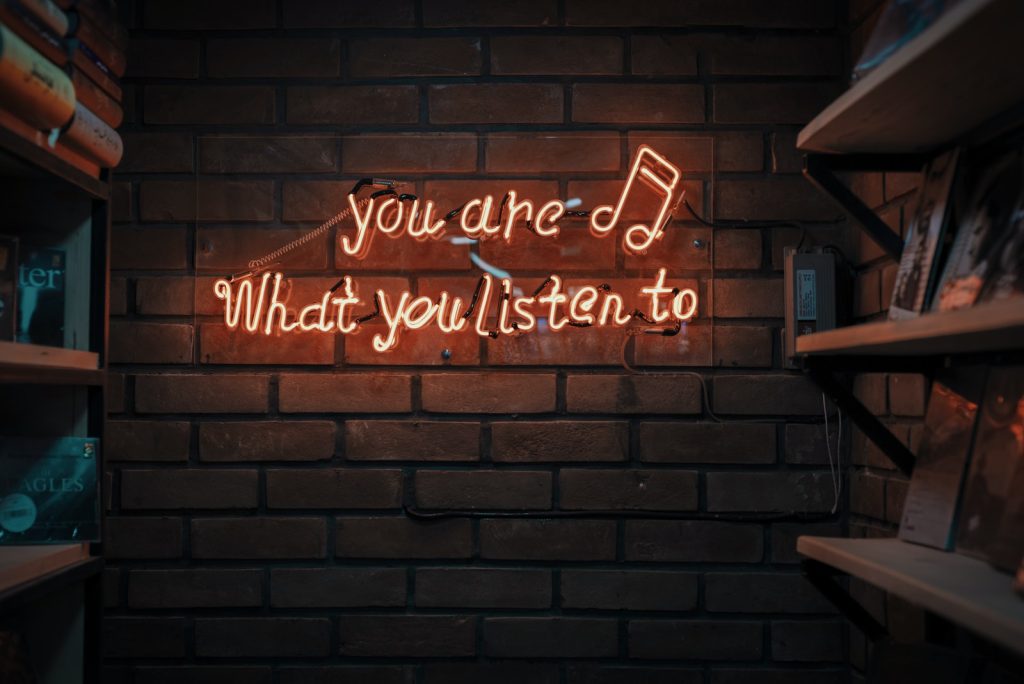
The Healing Playlist – Crafting Music for Wellness and Vitality. Photo by Mohammad Metri
Music has the power to touch our souls, and it can also help us heal both physically and mentally.
When you embark on a personal music journey, you open yourself up to the many benefits that music can offer. Here are a few ways that you can use music to enhance your life.
The Therapeutic Power of Singing and Songwriting
Singing and songwriting can be incredibly therapeutic. When you sing, your body releases endorphins, which can help to reduce stress and anxiety.
Additionally, singing can help improve your breathing and posture, positively impacting your health.
Songwriting is another way to use music to express yourself. Whether you write your songs or jot down a few lyrics, putting your thoughts and feelings into words can be incredibly cathartic. Songwriting can help you to process difficult emotions and gain a deeper understanding of yourself.
Dance and Movement: Expressing Emotions Through Music
Dance and movement can be another powerful way to use music to heal.
When you move your body to music, you release tension and stress, which can help to improve your mood and reduce anxiety.
Additionally, dancing can help to improve your balance, coordination, and flexibility.
Using music to express your emotions can be especially helpful if you are dealing with chronic pain or illness.
Research has shown that listening to music can help reduce pain perception and manage pain levels.
Additionally, music can help to distract you from your pain and provide a sense of comfort and relaxation.
Whether you are feeling crowded and agitated, lonely and in need of connection, music can help you live life to its fullest.
By incorporating music into your daily routine, you can experience the many psychological and physiological responses that music can offer.
So put on your favorite song, sing at the top of your lungs, and dance like nobody’s watching.
Live Music Experiences
Live music experiences are a powerful way to connect with others and tap into the healing power of music.
Whether you are attending a concert, a festival, or a local performance, the experience of live music can have a profound impact on your mind, body, and soul.
The Unique Impact of Live Performances
Live music has a unique impact on our psychological and physiological responses.
According to a study published in the Journal of Positive Psychology, attending a live music performance can increase well-being, happiness, and life satisfaction.
The study also found that people who attend live music events report feeling more connected to others and more engaged with the world around them.
One of the reasons live music is so powerful is that it engages all of our senses.
When we attend a concert or festival, we not only hear the music, but we also see the performers, feel the vibrations of the music, and even smell the atmosphere.
This multisensory experience can create a deep sense of connection and immersion that is difficult to replicate in other settings.
Music Festivals and Community Healing
Music festivals offer a unique opportunity for community healing and connection.
These events bring together people from all walks of life, creating a shared experience that can help to break down barriers and build bridges between different groups.
In addition to the social benefits, music festivals can profoundly impact our physical and mental health.
Research has shown that music can help to manage pain, reduce anxiety and depression, and even improve sleep quality.
For people living with chronic pain, attending a music festival can be a powerful way to find relief and connect with others who share similar struggles.
Overall, live music experiences offer a powerful way to tap into music’s power to heal and live life to its fullest.
Whether you are attending a concert, festival, or local performance, the experience of live music can profoundly impact your well-being and sense of connection to others.
“Music is the medicine of the mind.” – John A. Logan
My take on this quote
Music heals the soul. Music is more than just a form of entertainment.
It is a powerful tool that can affect our mood, emotions, and well-being. Music can soothe our pain, lift our spirits, and inspire us to create.
Music can also help us cope with stress, anxiety, and depression. Music is a universal language that connects us with ourselves and others. Listen to music that makes you happy.
What this means for you
You can use music to improve your life. Music is not only a pleasure but a necessity. You can use music to enhance your productivity, creativity, and learning.
You can use music to relax, meditate, and sleep better. You can use music to express yourself, communicate, and bond with others. You can use music to heal your mind, body, and soul. Make music a part of your daily routine.
It is a famous quote by John A. Logan, an American soldier and politician who lived from 1826 to 18861.
He is best known for his role in the American Civil War and advocacy for veterans’ rights2.
The quote suggests that Music has a positive and healing effect on the mind, supported by some scientific research34.
Music can activate various brain regions, enhance memory and creativity, and improve mood and emotions34. Do you agree with this quote? 😊
1: John A. Logan – Music is the medicine of the mind. – BrainyQuote 2: [John A. Logan – Wikipedia] 3: Music and the Brain | Psychology Today 4: Music: The Medicine of the Mind. | Brainfit World : [John A. Logan – Wikipedia]
Depending on your preference and mood, many types of Music can help you relax. Some common examples are:
- Piano music: Piano music is often soothing and gentle, creating a calm, relaxed atmosphere. Piano music can also evoke positive emotions and memories and stimulate creativity and imagination. You can listen to piano music for stress relief, sleep, meditation, or studying. Some examples of relaxing piano music are Beautiful Piano Music, Vol. 3 by Peder B. Helland1, Riley by OCB Relax Music2, and Peaceful Piano Music by Spotify3.
- Nature sounds: Nature sounds are the natural sounds of the environment, such as birds, water, wind, rain, etc. Nature sounds can help you relax by creating a sense of harmony and connection with nature. Nature sounds can also mask unwanted noises and improve your concentration and focus. You can listen to nature sounds for sleeping, relaxation, or mindfulness. Some examples of relaxing nature sounds are Forest 4K by Relaxation Film4, Zen Radio by Zen Radio5, and Sound Healing for Deep Relaxation by Deep Breath – Relaxing Music6.
- Ambient Music: Ambient Music is a genre of Music that focuses on creating a mood or atmosphere rather than a melody or rhythm. Ambient Music can help you relax by providing a discreet and soothing background sound. Ambient Music can also enhance your mental state and awareness and induce a trance-like or meditative state. You can listen to ambient Music for meditation, yoga, or healing. Some examples of relaxing ambient Music are Stop Overthinking by Healing Soul7, Sleep Instantly Within 3 Minutes by Meditate with Abhi8, and Music for Relaxation and Stress Relief by Verywell Mind9.
I hope this helps you find some music that can help you relax. 😊 Enjoy the Music and relax your mind.
Frequently Asked Questions
How does music therapy contribute to health and well-being?
Music therapy has positively impacted physical, emotional, and cognitive health.
According to a study published in the Journal of Music Therapy, music therapy can help reduce symptoms of anxiety and depression, improve mood, and increase relaxation.
Additionally, music therapy has been found to help with pain management, improve motor skills, and enhance communication and socialization skills.
Can specific genres of music have different healing effects on the brain?
Yes, different genres of music can have different effects on the brain.
For example, classical music has been found to have a calming effect, while upbeat music can increase energy and motivation.
Additionally, music with a strong beat can help with movement and coordination, making it a valuable tool in physical therapy.
What notable quotes capture the essence of music’s healing power?
Explore
This is a famous quote by John A. Logan, an American soldier and politician who lived from 1826 to 18861.
He is best known for his role in the American Civil War and advocacy for veterans’ rights2.
The quote suggests that music has a positive and healing effect on the mind, supported by some scientific research34.
Music can activate various brain regions, enhance memory and creativity, and improve mood and emotions34. Do you agree with this quote? 😊
1 John A. Logan – Music is the medicine of the mind. – BrainyQuote 2: [John A. Logan – Wikipedia] 3: Music and the Brain | Psychology Today 4: Music: The Medicine of the Mind. | Brainfit World : [John A. Logan – Wikipedia]
“Music is a higher revelation than all wisdom and philosophy.” – Ludwig van Beethoven
“Music is the divine way to tell beautiful, poetic things to the heart.” – Pablo Casals
What scientific research supports the idea that music can be healing?
A growing body of scientific research supports the idea that music can be healing.
For example, a study published in the Journal of Advanced Nursing found that listening to music can help reduce pain and anxiety in patients undergoing medical procedures.
Another study published in the Journal of Music Therapy found that music therapy can help reduce symptoms of depression in older adults.
What are the key takeaways from Richard Schiffman’s perspective on the healing power of music?
According to Richard Schiffman, a journalist who has written extensively on the healing power of music, music can help us connect with our emotions, reduce stress, and promote relaxation.
Music can also help us feel more connected to others and the world.
How can a short speech encapsulate the impact of music’s healing abilities?
A short speech about the healing power of music could highlight some of the critical ways music can contribute to health and well-being.
For example, the speech could discuss how music can reduce stress, promote relaxation, and enhance socialization skills.
Additionally, the speech could include personal anecdotes or quotes from experts to illustrate the power of music in a relatable way.
Wrap-up
“The Healing Power of Music: Not Just for the Soul” uncovers the profound influence of music on our physical well-being, highlighting that its therapeutic impact extends far beyond soothing the soul.
In this enlightening exploration, we delve into the remarkable ways music can enhance physical health, providing a deeper understanding of its healing potential.
While music has long been recognized for its emotional and psychological benefits, this article sheds light on its often-overlooked physical effects.
From reducing stress and anxiety to boosting immunity and even aiding in pain management, music has the power to address a wide array of health concerns.
We’ll journey through the science behind music therapy, discovering how melodies can be harnessed to promote holistic wellness and improve our overall quality of life.
So, if you’ve ever doubted the tangible impact of music on your body, prepare to be amazed by the healing wonders it holds, not just for your soul but for your entire being.
Call to Action: “Ready to experience the transformative effects of music on your physical well-being?
Take the first step towards a healthier you by incorporating healing melodies into your life.
Explore the magic of music therapy and unlock a world of vitality and balance!”
P. S. “Discover the untapped potential of music to heal and revitalize your body. Dive deeper into ‘The Healing Power of Music: Not Just for the Soul’ to uncover the secrets of music’s influence on physical health. Your journey to a harmonious life awaits!”
Elizabeth Redd: I am a passionate advocate for Health and Healing, dedicated to empowering individuals to live their best lives.
As the founder and publisher of Health and Healing, I have established myself as a guiding force in the wellness industry.
I am committed to providing the latest research, holistic approaches, and inspiring stories to open new possibilities for your health and healing journey.
Learn more about Elizabeth and Join Us at Health and Healing. Also, check out My About Page.

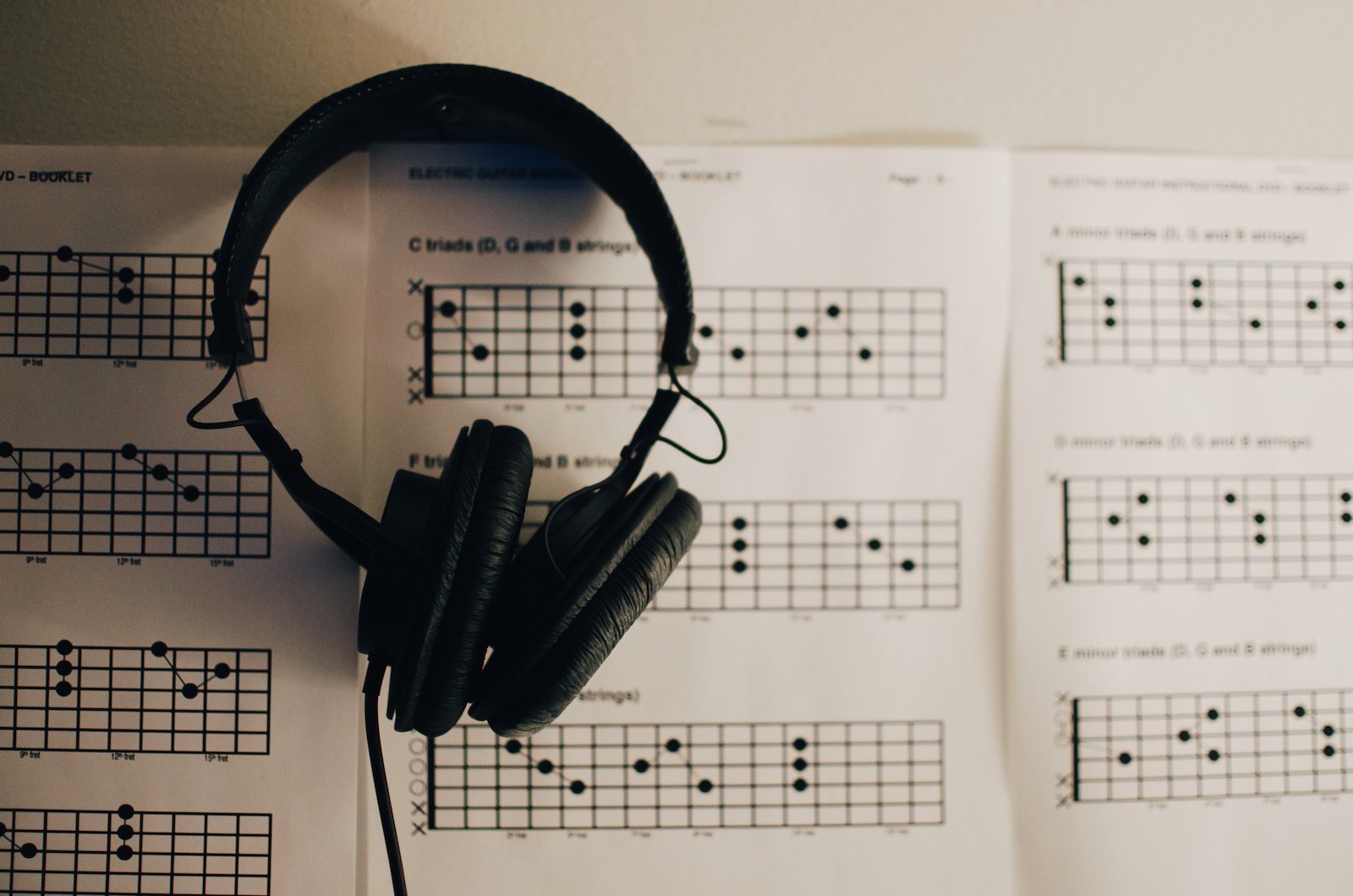

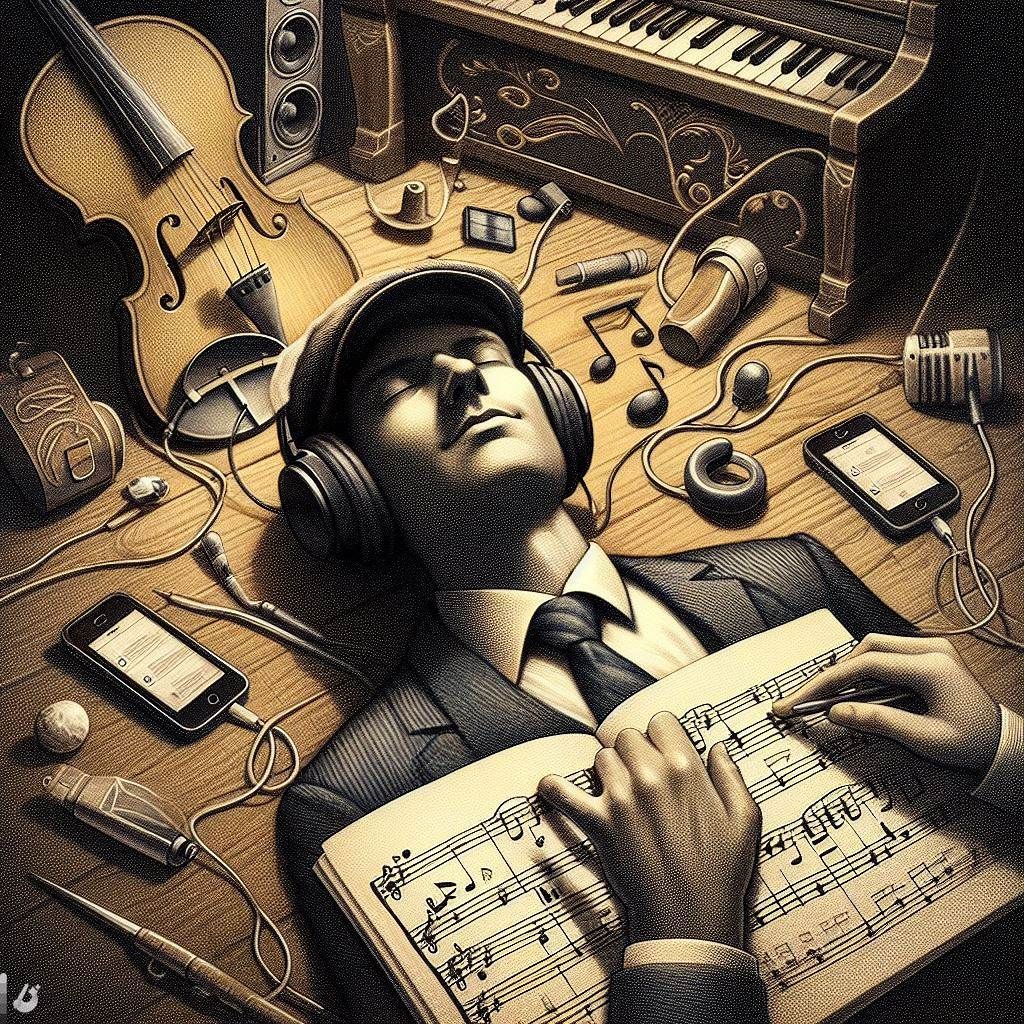

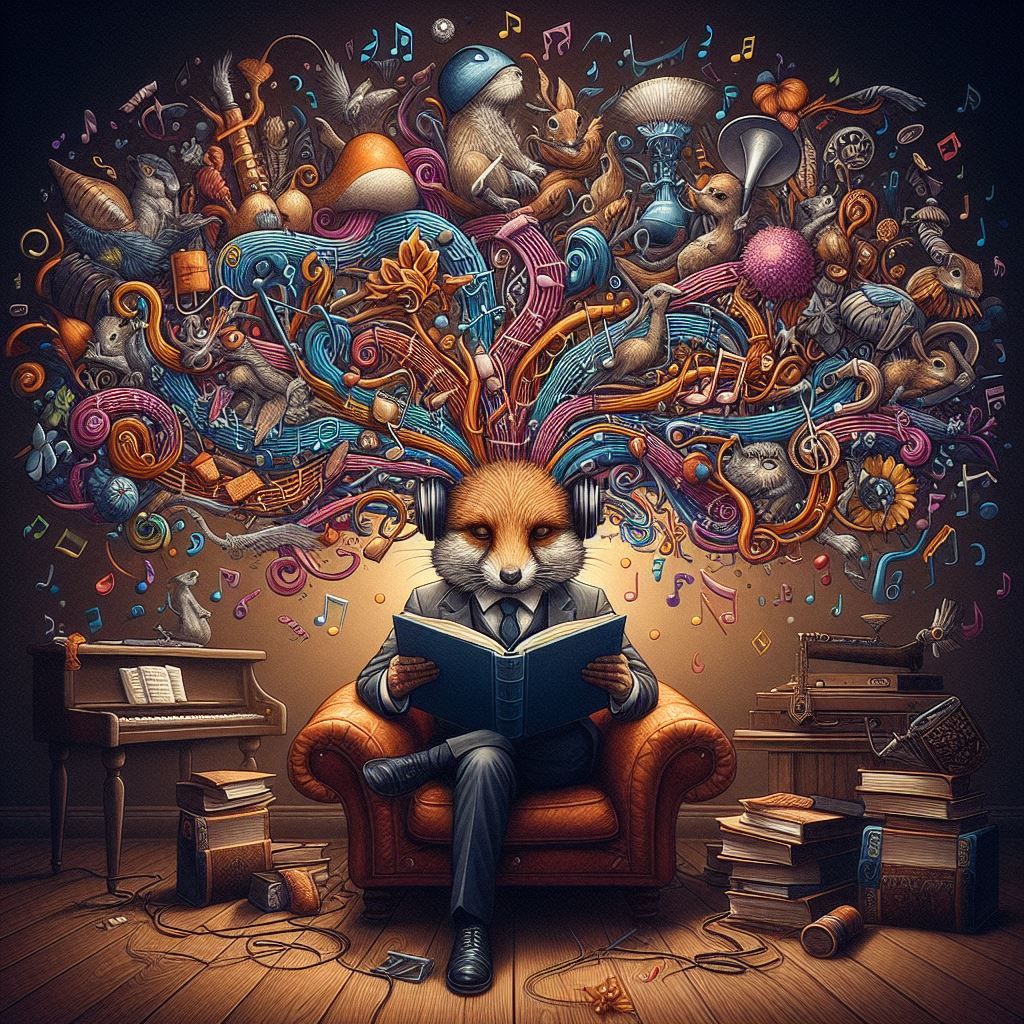




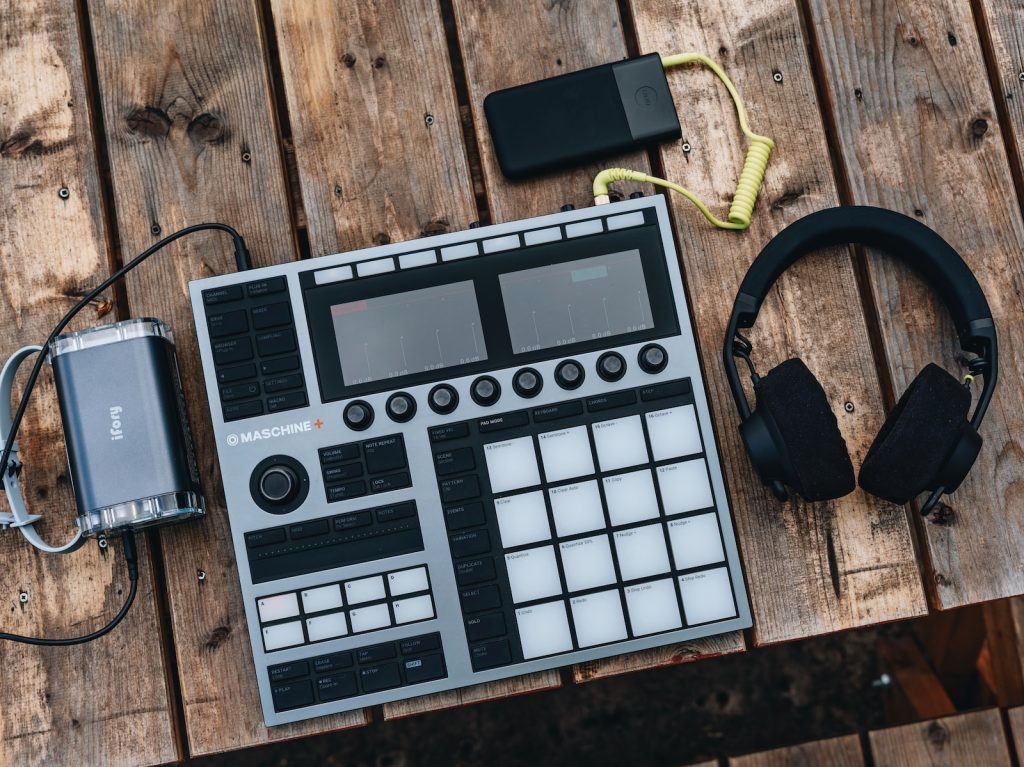



0 Comments